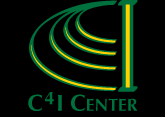
MENU
OIC 2009 Home
Registration
Agenda
Tutorial
Local Info
Accepted Papers
Presentations
Call for Papers
Important Dates
Submission Details
Publication
OIC 2009 Committee
C4I
Home

ONTOLOGY FOR THE INTELLIGENCE COMMUNITY
SCHEDULE OF EVENTS
Tuesday, October 20 Tutorial
| 08:20 - 09:00 | Registration and Breakfast | ||
| 09:00 - 10:20 | Tutorial Session 1 | ||
| Syntax, Semantics, Ontology Spectrum, Taxonomies | |||
| 10:20 - 10:40 | Coffee Break | ||
| 10:40 - 12:00 | Tutorial Session 2 | ||
| Thesauri, Conceptual Models, Logical Theories (Strong Ontologies) | |||
| 12:00 - 01:20 | Lunch Break | ||
| 01:20 - 02:40 | Tutorial Session 3 | ||
| Knowledge Representation, Logic, Ontological Engineering | |||
| 02:40 - 03:00 | Coffee Break | ||
| 03:00 - 04:20 | Tutorial Session 4 | ||
| The Semantic Web |
Wednesday, October 21
| 08:30 - 09:30 | Registration and Breakfast | ||
| 09:30 - 09:40 | Welcome | ||
| 09:40 - 10:40 | Keynote Address | ||
Chris Welty -
The Evolving Role of Rules and Ontologies in the Semantic Web

As the semantic web evolves with new standards (like OWL-2 and RIF), and more data (like Linked Open Data), the role of ontologies and rules in semantic web applications is evolving as well. In this talk I will briefly present highlights of the new standards and discuss where the technology and data seem to be taking us, and what role they will play as the web of data continues to evolve. (Bio) |
|||
| 10:40 - 11:00 | Coffee Break | ||
| 11:00 - 11:40 | Plenary Paper Session | ||
| 11:00 - 11:40 |
Substance-Blind Classification of Evidence for Intelligence Analysis paper |
David Schum, Gheorge Tecuci, and Mihai Boicu |
|
|
Abstract
Intelligence analysis requires the development of arguments that link evidence to hypotheses
by establishing and fusing the relevance, believability and inferential force or weight of a
wide variety of items of evidence of different types. This pa- per presents several
substance-blind classifications of evidence which are based on these inferential characteristics
and facilitate the clarification of many uncertainties lurking in intelligence analysis.
It also shows how the Disciple-LTA cognitive assistant uses these classifications to develop
Wigmorean probabilistic inference networks for assessing the likelihood of hypotheses. |
|||
| 11:40 - 01:20 | Lunch Break | ||
| 01:20 - 03:20 | Plenary Paper Session | ||
| 01:20 - 02:00 |
Towards an Effective Methodology for Rapidly Developing Component-Based Domain Ontologies paper |
Troy Self and Dave Kolas | |
|
Abstract
As the Intelligence Community migrates from a paradigm of using disjoint, data and application
stovepipes to a paradigm of shared knowledge and networked component services, the cost of
developing appropriate domain ontologies becomes a concern. In this paper, we present a
methodology for rapidly developing composite domain ontologies by linking and reusing existing
ontologies. We will compare composite domain ontologies to component- based software engineering,
present a metric for measuring the compositeness of an ontology, and describe a composite domain
ontology developed for real world use. |
|||
| 02:00 - 02:40 |
Supporting the Analytic Knowledge Manager: Formal Methods for Ontology Display and Management paper |
Alan Chappell, Anthony Bladek, Cliff Joslyn, Eric Marshall, Liam McGrath, Patrick Paulson, Sean Stolberg, and Amanda White |
|
|
Abstract
The Intelligence Community and other analytic-focused communities are developing and implementing
large knowledge bases and semantic-based systems. These systems require new activities for managing
their ontological underpinning, including a range of tasks from supporting domain description and
evolution to integrating multiple source of semantic information. Beyond the role of the analyst
or the traditional data base administrator, the role of the knowledge manager as the point of
focus for such activities is growing in prominence. We are developing methods and tools to provide
an analytical ability for the display and management of ontological systems, rooted in the formal
properties of semantic relations in semantic graphs, and the semantic hierarchies in which they
are valued. We describe methods for display, integration, and management of ontological resources
to support the emerging Analytical Knowledge Manager with the AKEA tool. |
|||
| 02:40 - 03:20 |
Contributions to a Semantically-Based
Intelligence Analysis Enterprise Workflow System paper |
Robert Schrag, Jon Pastor, Chris Long, Eric Peterson, Mark Cornwell, and Lance Forbes |
|
|
Abstract
We have contributed key elements of a semantically based intelligence analysis enterprise
workflow architecture: a uniformly accessible semantic store conforming to an enterprise- wide
ontology; a branching context representation to organize workflow components' analytical
hypotheses; a logic programming-based, forward-chaining query language for components to
access data from the store; and a software toolkit embracing all the foregoing to streamline
the process of introducing additional legacy software components as semantically interoperable
workflow building blocks. |
|||
| 03:20 - 03:40 | Coffee Break | ||
| 03:40 - 05:00 | Plenary Paper Session | ||
| 03:40 - 04:20 |
Universal Core Semantic Layer paper |
Barry Smith, Lowell Vizenor, and James Schoening |
|
|
Abstract
The Universal Core (UCore) is a central element of the National Information Sharing Strategy
that is supported by multiple U.S. Federal Government Departments, by the intelligence community,
and by a number of other national and international institutions. The goal of the UCore
initiative is to foster information sharing by means of an XML schema providing consensus
representations for four groups of universally understood terms under the headings who,
what, when, and where. We here describe a project to create an ontology-based supporting
layer for UCore, entitled 'Universal Core Semantic Layer' (UCore SL), and describe how
UCore SL can be applied to further UCore's information sharing goals. |
|||
| 04:20 - 05:00 |
Referent Tracking for Command and Control Messaging Systems paper |
Shahid Manzoor, Werner Ceusters, and Barry Smith |
|
|
Abstract
The Joint Battle Management Language (JBML) is an XML-based language designed to allow
Command and Control (C2) systems to interface easily with Modeling and Simulation (M&S)
systems. While some of the XML-tags defined in this language correspond to types of entities
that exist in reality, others are mere syntactic artifacts used to structure the messages
themselves. Because these two kinds of tags are not formally distinguishable, JBML messages
in effect confuse data with what the data represent. In this paper we show how a
realism-based ontology combined with a rule language can be used to make these distinctions
explicit. The approach allows storage of the contents of JBML messages in a Referent
Tracking System in a format that mimics the structure of reality thereby providing an
aid to message validation. |
|||
| 05:30 | Transportation to Marriott | ||
| 06:00 - 08:00 | Conference Dinner | ||
Thursday, October 22
| 08:30 - 09:00 | Breakfast | ||
| 09:00 - 10:00 | Keynote Address | ||
Doug Lenat -
Mistakes Were Made
 Douglas Lenat founded and has run the Cyc project since 1984, leading a team
Douglas Lenat founded and has run the Cyc project since 1984, leading a team building a large and broad ontology, knowledge base, and inference engine. This talk will describe some of the lessons learned along the way, ranging from representation of knowledge, to choice of what knowledge to represent, to knowledge acquisition methodologies, to reasoning strategies and tactics. It will showcase some of the applications that forced Cyc to grapple with large amounts of data, multiple sources, contradictory information, and so on, which have largely come from the intelligence community and (perhaps surprisingly, to this audience) from the clinical research community. Dr. Lenat's work in machine learning won the Computers and Thought Award; he helped establish the AAAI, and is a Fellow of the AAAI and of the AAAS. Prior to Cyc, Dr. Lenat was a computer science faculty member at Stanford and CMU, and he will briefly touch on a few "learning experiences" he had back then, that laid the foundation for his being able to make the mistakes of the last 25 years. |
|||
| 10:00 - 10:20 | Coffee Break | ||
| 10:20 - 11:40 | Plenary Paper Session | ||
| 10:20 - 11:00 |
An Ontological Approach to Information Access Control and Provenance paper |
Bill Andersen and Fabian Neuhaus | |
|
Abstract
The need to share information among intelligence agencies with different responsibilities
and at different levels of government has long been recognized. Only recently, however,
has the requirement to share been elevated to a priority backed by policy. Existing
approaches to multilevel security are insufficient to solve the sharing problem. First,
each agency has legitimate reasons for maintenance of access control requirements that
suit internal needs but are difficult to reconcile between agencies. Nevertheless, this
problem must be solved if we expect agencies to share their information. Second, any
access control scheme must simultaneously address the issue of information provenance.
Without trust in shared information, consumers are unlikely use it, defeating the purpose
of sharing. In this paper we pursue an approach to the combined problems of access control
and provenance that centers on an ontological analysis of the relevant entities involvedâ
€“ information systems, information encoding in the form of linguistic tokens, and the
relevant kinds of events in which these entities participate. The approach is presented
as a logical theory that deals with information explicitly encoded in formal languages.
In future work we expect to extend it to other important cases such as images, video,
audio, or physical artifacts such as paper documents. |
|||
| 11:00 - 11:40 |
Course of Action Planning Ontology paper |
Timothy Darr | |
|
Abstract
This paper describes an ontology to support course of action (COA) planning that provides
an extensible framework for modeling COA plans consistent with Army and Marine Corp doctrine.
This ontology is structured into a core ontology that includes definitions of common COA
planning concepts (activities, phases, outcomes, measures-of-performance,
measures-of-effectiveness, etc.), and multiple domain-specific ontologies that extend the
core ontology for specific types of plans (stability operations, counterinsurgency planning,
information operations planning, etc.). A preference relation between descriptions of the
"plan state" using measures-of-effectiveness is introduced to allow subject-matter experts
to specify a ranking over plan activities or phases from a specific Human Social Culture
Behavior (HSCB) perspective. These preferences can be used in the planning process to
identify or prune black holes and blind alleys. |
|||
| 11:40 - 01:20 | Lunch Break | ||
| 01:20 - 02:00 | Plenary Paper Session | ||
| 01:020 - 02:00 |
Higher Order Uncertainty and Evidential Ontologies |
Justin Brody | |
|
Abstract
The uncertainties implicit in intelligence gathering are not only about the state of the world,
but also about the ways in which varying contexts should affect the degree to which a proposition
is believed. We call this latter form of uncertainty {\it higher order uncertainty}, and argue
that the introduction of a logical operator to K. Laskey's MEBN specification can allow for
learning about such uncertainty to occur. |
|||
| 02:00 - 02:40 | Plenary Discussion | ||
| NCOR | Barry Smith | ||
|
Abstract
The National Center for Ontological Research (NCOR) was founded in 2005 with the goal of advancing
ontological research within the United States. NCOR founded the OIC series, and is a co-organizer
of the annual Ontology Summit in Gaithersburg, MD. Currently, NCOR is funded to provide ontology
support to the US Army Net-Centric Data Strategy Center of Excellence, especially in the context
of the Federal Government UCore initiative. NCOR's long-term goal is to provide coordination,
infrastructure, and other forms of support for those working in theoretical and applied ontology,
with a special focus on ontology standards, empirical measures of ontology quality, and dissemination
of ontology best practices. This session is designed to serve as a public discussion on the question
how best these ends can be realized in the future. |
|||
| 02:40 - 03:00 | Coffee Break | ||
| 03:00 - 04:00 | Panel Discussion | ||
| The Future of the OIC | Panel: Leo Obrst, Cliff Joslyn, | ||
| Bob Schrag, and Dave Kolas | |||
|
Abstract
Where do we go from here? We want to combine government, contractor, and academic participation in
a joint conference that focuses on the use of ontologies (and semantic technologies more generally)
in and for the intelligence community. We want to have sound research papers and sound application
papers, both peer-reviewed, with the emphasis on assisting the intelligence community. We also want
to have a Classified Session, so that needed conversations occur within the intelligence community
in this focused environment concerning the use of ontologies, and they are more apt to occur at
TS/SCI levels. |
|||
| 04:00 - 04:10 | Wrap Up | ||
